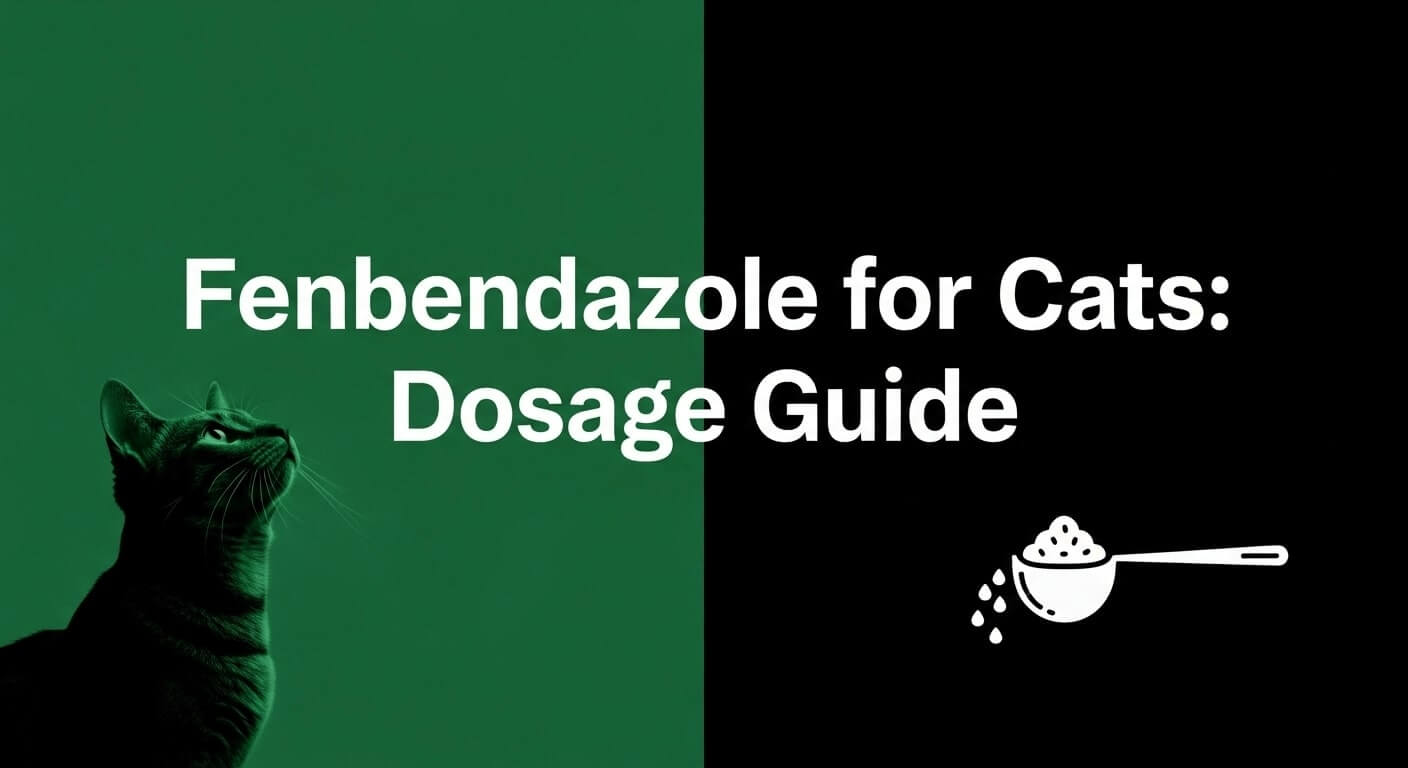
Fenbendazole for cats dosage – If you’re a cat owner dealing with parasitic infections, you may have heard about fenbendazole for cats dosage as an effective treatment. Fenbendazole is a broad-spectrum antiparasitic medication commonly used to treat various intestinal worms in cats. However, determining the correct fenbendazole for cats dosage is crucial to ensure safety and efficacy.
In this detailed guide, we’ll cover everything you need to know about fenbendazole for cats dosage, including its uses, safety, administration, and potential side effects.
What Is Fenbendazole?
Fenbendazole is a benzimidazole-class dewormer that works by disrupting the energy metabolism of parasites, leading to their death. It is effective against:
- Roundworms (Toxocara cati, Toxascaris leonina)
- Hookworms (Ancylostoma tubaeforme)
- Tapeworms (Taenia taeniaeformis)
- Giardia (Giardia duodenalis)
- Some lungworms (Aelurostrongylus abstrusus)
Because of its broad-spectrum activity, veterinarians often recommend fenbendazole for cats dosage as part of a deworming protocol.
When to Use Fenbendazole for Cats
You should consider fenbendazole for cats dosage if your cat shows signs of parasitic infection, such as:
- Diarrhea or vomiting
- Visible worms in feces Weight loss despite a good appetite
- A bloated or distended belly
- Lethargy or poor coat condition
A fecal exam by a veterinarian can confirm the presence of parasites before starting treatment.
Fenbendazole for Cats Dosage Guidelines
The standard fenbendazole for cats dosage is 50 mg per kilogram (22.7 mg per pound) of body weight, given once daily for 3 to 5 consecutive days.
Dosage Chart for Fenbendazole in Cats
| Cat Weight (lbs) | Cat Weight (kg) | Daily Fenbendazole Dose (50 mg/kg) |
|---|---|---|
| 2 lbs | 0.9 kg | 45 mg |
| 4 lbs | 1.8 kg | 90 mg |
| 6 lbs | 2.7 kg | 135 mg |
| 8 lbs | 3.6 kg | 180 mg |
| 10 lbs | 4.5 kg | 225 mg |
Available Forms of Fenbendazole
- Panacur® (Fenbendazole) Granules or Paste – Often used for cats, easy to mix with food.
- Liquid Suspension – Can be given directly or mixed with wet food.
- Tablets – Less common for cats but can be crushed and mixed with food.
Always consult your vet before administering fenbendazole for cats dosage to ensure proper dosing.
How to Administer Fenbendazole to Cats
Administering fenbendazole for cats dosage can be tricky, especially if your cat is finicky. Here are some tips:
- Mix with Wet Food – The easiest method is to blend the correct dose into a small portion of wet food.
- Use a Syringe (Liquid Form) – If your cat refuses medicated food, gently administer the liquid using an oral syringe.
- Hide in Treats – Some pet owners use pill pockets or soft treats to disguise the medication.
- Direct Oral Administration – If necessary, place the pill at the back of the tongue and gently hold the mouth closed until swallowed.
Safety and Side Effects of Fenbendazole in Cats
When used at the correct fenbendazole for cats dosage, this medication is generally safe. However, some cats may experience mild side effects, including:
- Diarrhea or vomiting
- Lethargy
- Loss of appetite
Rare but serious side effects (indicating an overdose or sensitivity) include:
- Neurological symptoms (tremors, seizures)
- Severe allergic reactions (swelling, difficulty breathing)
If your cat shows adverse reactions, stop treatment and contact your vet immediately.
Precautions When Using Fenbendazole for Cats
- Avoid in Pregnant Cats – Fenbendazole may cause birth defects if given during early pregnancy.
- Liver or Kidney Disease – Cats with pre-existing conditions may need adjusted dosing.
- Drug Interactions – Consult your vet if your cat is on other medications.
- Repeat Fecal Testing – Some parasites require a second round of treatment.
Frequently Asked Questions (FAQs)
1. Can I use fenbendazole for kittens?
Yes, but only under veterinary supervision. The fenbendazole for cats dosage must be carefully calculated for small kittens.
2. How often should I deworm my cat with fenbendazole?
For active infections, a 3 to 5-day course is typical. For prevention, follow your vet’s recommendations (usually every 3-6 months).
3. Is fenbendazole effective against tapeworms?
It works against some tapeworms (Taenia spp.), but not Dipylidium caninum (flea tapeworm). Praziquantel is better for those.
4. Can I buy fenbendazole over the counter?
Yes, but a vet should confirm the diagnosis and fenbendazole for cats dosage before use.
5. What if my cat refuses to take fenbendazole?
Try mixing it with strong-smelling food (tuna, chicken broth) or ask your vet for alternative dewormers.
Conclusion
Understanding the correct fenbendazole for cats dosage is essential for safely and effectively treating parasitic infections. While fenbendazole is widely used and generally safe, always consult your veterinarian before starting treatment—especially for kittens, pregnant cats, or pets with health issues.
By following the proper fenbendazole for cats dosage guidelines, you can help keep your feline friend parasite-free and healthy. If you suspect a worm infestation, don’t delay—seek veterinary advice and start treatment as needed.
Would you like personalized advice on fenbendazole for cats dosage for your pet? Schedule a consultation with your vet today!


Comments (0)
Leave A Comment